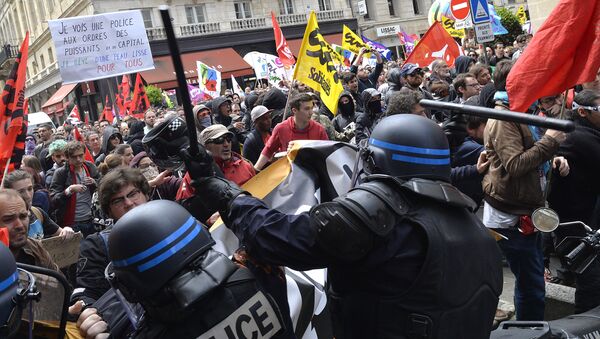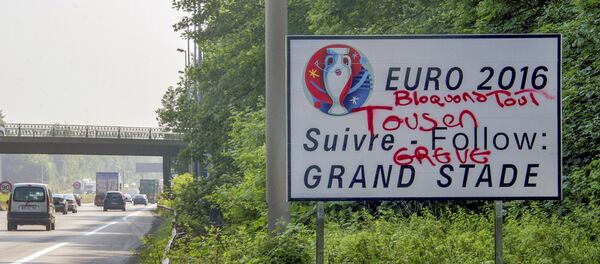Across the country, 1.3 million people hit the streets, according to the unions, but the figure was closer to 125,000, according to authorities.
Opinion polls show that, while four out of five, disagree with the labor reforms, there is dwindling support for the industrial action — particularly with the eyes of the world on France, which is hosting the current Euro 2016 football tournament.
Football should never be a distraction from social struggles — https://t.co/pIqjQpIKd0 via @rebellyon_info #frenchriots #euro2016
— Gabi Nogueira (@notanothergabi) 11 June 2016
35-Hour Week Impasse
The protests are against reforms to the highly codified French labor laws — known as the Code du travail — in order to give employers more flexibility. The labor reforms were largely directed at making companies take on more workers on permanent contracts, rather than temporary ones, to bring down the unemployment rate from ten percent. The proposals would give employers more scope to lay-off workers and cut costs and allow some employees to work far longer than the current 35-hour week.
https://t.co/7OHF0n063N
— Elly P (@SnuggMeBlankets) 24 May 2016
This needs to go viral before it is removed.#frenchriots #newsblackout#whyweshouldvoteout
The reforms were pushed through by French President Francois Hollande, who invoked a little used piece of the constitution — Article 49.3 — to bypass the upper house — the Senate — which is dominated by Republicans, who are against the reforms.
Now the Senate is set to debate the provisions of the labor reforms — challenging the proposed working time provisions — and put it to a vote, causing another constitutional crisis.



